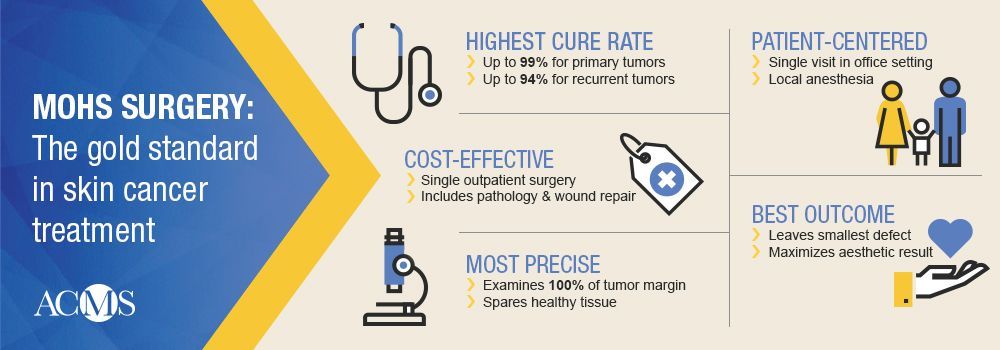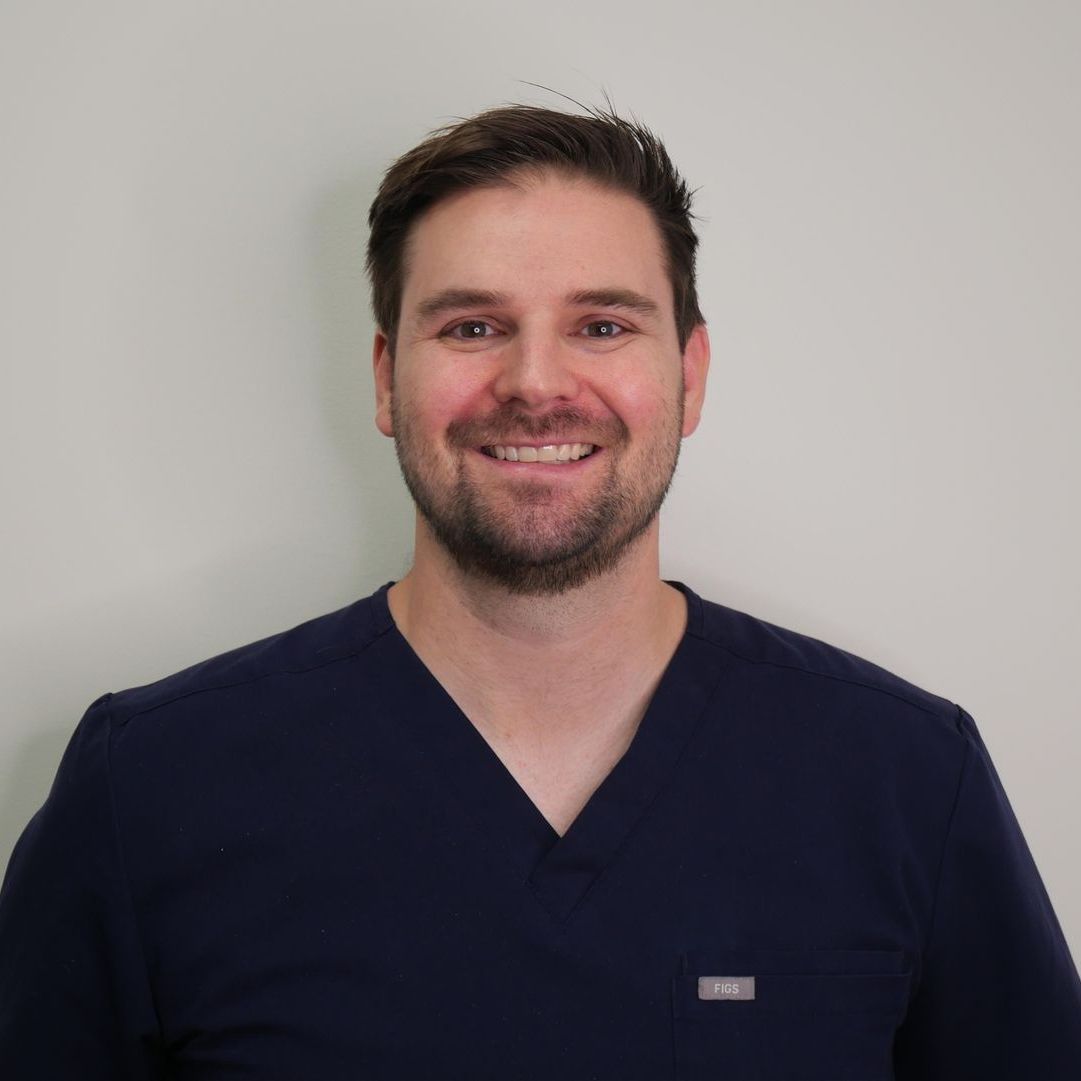Mohs
Mohs Micrographic Surgery (MOHS) is a specialized, precise surgical technique used to treat skin cancer, particularly basal cell carcinoma and squamous cell carcinoma. The goal of the procedure is to remove all of the cancerous tissue while preserving as much healthy skin as possible.
The process involves
removing the skin cancer and processing thin layers of tissue
and immediately examining them under a microscope. If cancer cells are still present, another layer is removed precisely where the skin cancer is identified and examined, continuing until the tissue is cancer-free. This method has the highest cure rate up to 99% for BCCs, and it minimizes the risk of recurrence. The surgery is typically performed under local anesthesia, and it is often used for skin cancers in areas where preserving cosmetic appearance is important, such as the face.
WHAT YOU NEED TO KNOW ABOUT SKIN CANCER AND TREATMENT
Skin cancer is the most common cancer in America, one that requires expert treatment. Consider these facts:
- More than 5 million skin cancers are treated yearly in the U.S.
- 3.3 million Americans are treated each year
- 1 in 5 people will be diagnosed in their lifetime
- Treatment costs an estimated $8.1 billion each year
- Each year, there are more new cases of skin cancer than all other cancers combined

Frequently Asked Questions
How long will I be there?
MOHS typically takes 4 to 8 hours to complete, depending on the complexity of the procedure and the size of the area being treated. This surgical technique is highly precise and involves several steps, which contribute to its length
Can I eat during the day?
Yes, you can eat during the day before your Mohs surgery, as long as you follow your doctor's specific instructions. Most Mohs surgeries are done under local anesthesia, so fasting is typically not required. However, it's often recommended to eat a light meal or snack before the procedure, especially if it’s scheduled for later in the day.
What should I wear?
For Mohs surgery, wear loose, comfortable clothing that allows easy access to the treatment area, such as a button-up shirt or zip-up top. Avoid tight clothing or jewelry, especially near the surgical site, and make sure to remove makeup if it's on the area being treated. Comfortable shoes are also recommended since you may need to walk or wait during the procedure.
Can I wear makeup?
It’s best to avoid wearing makeup on the area that will be treated for Mohs surgery, as it can interfere with the procedure. If the surgery is on your face, remove makeup before your appointment to ensure the surgeon can clearly assess the area.
Should I stop taking my blood thinners?
No, You should not stop taking your blood thinners.
Will I need a Plastic Surgeon?
You may or may not need a plastic surgeon after Mohs surgery, depending on the size and location of the wound.
For smaller or less complex areas, the Mohs surgeon can often close the wound themselves. However, if the removal site is large or in a sensitive area (like the face), your doctor may recommend consulting a plastic surgeon for reconstruction to ensure the best cosmetic outcome. This decision will be based on your specific case, and your Mohs surgeon will discuss your options with you during the procedure.
Will I need someone to drive for me?
While you may prefer to have someone drive you to your appointment, in most cases, you will be able to drive yourself afterward. The procedure itself is typically quick and done with local anesthesia, which means you won’t be sedated. However, if you're concerned or feeling uncertain, it's always a good idea to arrange for someone to drive you just in case.
Learn more:
MEET THE MOHS SURGEON

Dr. Eilers is double board certified in Micrographic Dermatologic Surgery and Dermatology. He is a Fellow of the American College of Mohs Surgery (ACMS) and specializes in performing Mohs surgeries and complex reconstructions.
He attended college at Northwestern University in Evanston, IL, graduating in 3 years Magna Cum Laude and Phi Beta Kappa in 2009. He attended the University of Chicago Pritzker School of Medicine for medical school where he was awarded a full tuition merit scholarship and graduated in 2014. He completed his Dermatology residency at Rutgers Robert Wood Johnson Medical Center in 2018 and his Mohs Micrographic Surgery and Procedural Dermatology Fellowship at Skin Laser & Surgery Specialists of NY & NJ in 2019 working with Dr. David Goldberg, Dr. David Ciocon and Dr. Margarita Lolis.
Although he is originally from the Chicagoland area, Dr. Eilers' wife is from Lexington and they moved here together to raise their family. In his time outside of practice, he enjoys golf, football, restaurants, travel, 80s music, playing the piano, reading history, and most importantly, spending time with his wife Andie, his son Coleman, his daughter Reagan, and his dog Sammy.


